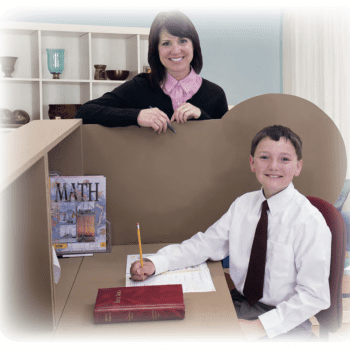When I write about the socialization problems I experienced as a homeschooler, a common response from homeschool advocates is that my experience was just fringe—and that it doesn’t in any way represent homeschoolers as a whole. This made me wonder: Just what is “fringe”?
When it comes to socialization, HSLDA is still touting 1997 numbers showing that most homeschoolers are involved in a variety of outside activities, including things like 4H, bible club, and music classes. There is one part of these numbers, however, that is very little discussed: Namely, the the fact that 87% of the homeschooled children in the study played with people outside of their family means that 13% of them did not play with people outside of their families. This is not simply socialization within a bubble or limited social interaction, it’s social isolation.
Who are these 13%? The study was doen by Brian Ray and was commissioned by HSLDA. It was billed as a way to prove that homeschool children did well academically, so presumably the volunteers were more likely to be committed homeschoolers who felt that their children’s scores would help prove homeschooling’s validity. Presumably, also, the participants were Christian homeschoolers in HSLDA’s orbit of influence. And a full 13% of these homeschooled children did not have friends other than their siblings.
Is 13% fringe? You could argue so, especially given that this number likely leaves out unschoolers and those not homeschooling for religious reasons, who are less likely to seek to limit their children’s social interaction, and given that the number is now sixteen years old. The trouble is that when the term “fringe” is used it is used to minimize and brush over the group it is being applied to. I don’t think that group should be minimized or brushed over, especially when so many parents were willing to openly admit that their children did not socialize with those outside of their family. Should we suggest that all homeschoolers are socially isolated? Certainly not! But we do need to admit that some are.
Had my parents participated in this Ray study, I would not have been in that 13% figure. I had friends outside of my family. However, I was not socialized outside of Christian homeschool circles, and I think that’s important to talk about as well, because this too is something I’ve been told is “fringe.” Those Christians who homeschool in part or in whole for religious reasons are almost universally concerned about the influence unbelieving peers may have on their children. Indeed, removing their children from those influences is part of why they homeschool. Because of this, they generally socialize their children exclusively with other Christian homeschoolers—and they are generally not against cutting off even these friendships when a friend’s family is considered too “liberal” in their beliefs. It is for this reason that I find the suggestion that homeschool kids being socialized exclusively in an Christian homeschool bubble is “fringe” ridiculous. Granted, being socialized in a bubble is head and shoulders better than being completely socially isolated, but it can and does result in socialization challenges for those who eventually leave that bubble.
Now I know that not all homeschool parents homeschool for religious reasons. I know that there are also unschoolers and others who homeschool for secular reasons. However, according to the National Center for Education Statistics, in 2007 (the most recent year they have released numbers for) 83% of homeschool parents list “a desire to provide religious or moral instruction” as one of their reasons for homeschooling, and 36% list it as their primary reason. (In fact, “dissatisfaction with academic instruction at other schools” was selected less frequently than the desire to provide religious or moral instruction). That does not sound at all “fringe” to me. Beyond just those numbers, when the largest homeschool conventions are dominated by individuals like Doug Phillips and Ken Ham, there is no way you’re going to convince me that Christian homeschooling is a “fringe” phenomenon in the homeschooling movement.
So are homeschool socialization problems, including both social isolation and troubles stemming from being socialized in a Christian homeschool bubble, “fringe”? I would answer that in the negative. Does that mean all homeschoolers are raised in a bubble, or that most homeschoolers are socially isolated? I would answer that, also, in the negative. But I don’t think that homeschool advocates who actively minimize and ignore very real problems in an effort to make sure that people know that not all homeschoolers are like that are doing themselves any favors. What’s so hard about admitting that it does happen and then taking steps to improve things?














